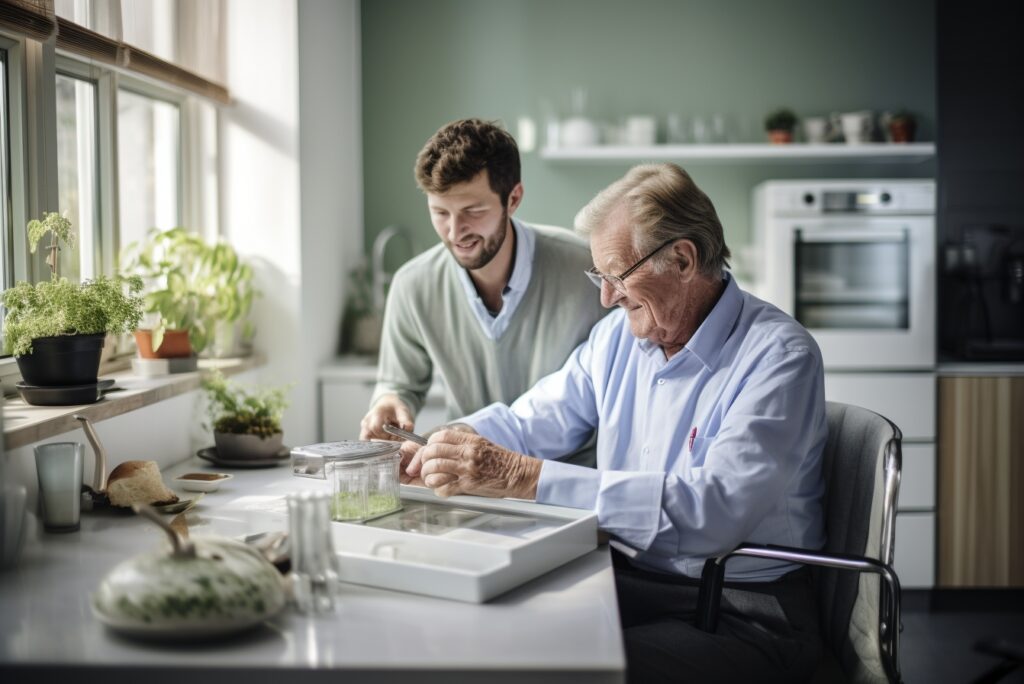Introduction
Unsung Heroes: The Significance of Family Caregiving
Family caregiving, an often unsung role, forms the cornerstone of our healthcare system. It’s a labor of love, a testament to human compassion, and a commitment that provides an irreplaceable support system to our loved ones in their hour of need.
Decoding the Role of a Family Caregiver
A family caregiver is more than just an aide; they are the anchor in their loved ones’ lives. They juggle physical care, emotional support, and complex medical tasks, all while trying to maintain equilibrium in their own lives.
Dissecting the Caregiver’s Role
The Emotional Tapestry of Caregiving
Caregiving is akin to an emotional roller coaster ride, replete with moments of joy, sorrow, frustration, and satisfaction. It demands emotional grit, the capacity to empathize, and the strength to offer solace during turbulent times.
The Physical Rigors of Caregiving
Caregiving can be a physically taxing endeavor, demanding strength, stamina, and the ability to perform intricate medical tasks. It’s not just about lifting or moving; it’s about being a constant, physical pillar of support for your loved one.
The Financial Ramifications of Caregiving
Caregiving can leave a significant dent in your finances. From medical expenses to lost work hours, the financial strain can be considerable. Yet, it’s a responsibility many shoulders willingly for the welfare of their loved ones.
The Quintessential Skills for Family Caregivers
Communication: The Lifeline of Caregiving
Effective communication is the lifeblood of caregiving. It’s about lending an ear, understanding, and responding to your loved one’s needs, and establishing clear lines of communication with healthcare professionals.
Patience: The Art of Weathering the Storm
Patience is a virtue that caregivers need in spades. It’s about understanding that the best-laid plans often go awry, that your loved one may not react as expected, and that patience is the key to managing these situations.
Empathy: Stepping into Their Shoes
Empathy is the ability to resonate with another’s feelings. In the realm of caregiving, empathy allows you to offer compassionate care and understand your loved one’s experiences.
 Medical Knowledge: The Caregiver’s Arsenal
Medical Knowledge: The Caregiver’s Arsenal
Caregivers often find themselves navigating complex medical tasks. A robust understanding of medical jargon, procedures, and medications is indispensable.
Problem-Solving: Charting a Course Through the Unexpected
Caregiving often throws a curveball. Problem-solving skills are crucial to steer through these situations, find solutions, and ensure the best care for your loved one.
Time Management: Striking a Balance Between Caregiving and Personal Life
Juggling caregiving responsibilities with personal life calls for effective time management. It’s about setting priorities, organizing your time, and ensuring you also cater to your own needs.
The Emotional Resilience of a Caregiver
Deciphering Emotional Resilience
Emotional resilience is the ability to weather stressful situations or crises. It’s about bouncing back from adversities and maintaining your emotional equilibrium.
Cultivating Emotional Resilience as a Caregiver
Cultivating emotional resilience involves self-care, seeking support, and practicing stress management techniques. It’s about nurturing your emotional health to provide the best care for your loved one.
The Role of Self-Care in Emotional Resilience
Self-care is not a luxury for caregivers; it’s a sine qua non. It’s about carving out time for yourself, nurturing your emotional health, and ensuring you have the resilience to continue providing care.
The Physical Stamina of a Caregiver
Decoding the Physical Demands of Caregiving
Caregiving is a physically demanding endeavor. It requires strength, endurance, and often the ability to perform complex medical tasks.
Building Physical Stamina for Caregiving
Building physical stamina involves caring for your physical health, practicing safe lifting techniques, and ensuring you have the strength and endurance to provide care.
The Role of Self-Care in Physical Stamina
Physical self-care is paramount for caregivers. It’s about maintaining a healthy diet, incorporating regular exercise, and ensuring you have the physical stamina to provide care.
Financial Management for Caregivers
Decoding the Financial Implications of Caregiving
Caregiving can have significant financial implications. It’s crucial to understand these implications and plan accordingly.
Unraveling the Financial Impact of Caregiving
When it comes to caregiving, it’s not just about the emotional and physical toll; your wallet feels the pinch too. From medical bills to the cost of taking time off work, the financial implications can be quite hefty. It’s a responsibility that many of us take on willingly, all for the sake of our loved ones’ well-being.
Financial Management for Caregivers: A Balancing Act
Managing finances as a caregiver is a bit like walking a tightrope. It’s about budgeting wisely, planning for future expenses, and exploring options for financial aid. It’s about ensuring you can provide top-notch care without putting your financial health on the line.
Final Thoughts
The Rewarding Journey of Family Caregiving: More Than Just a Silver Lining
Despite the hurdles, caregiving is more than just a job; it’s a rewarding journey. It’s about providing care, love, and support to your loved ones when they need it most. It’s about being there, come rain or shine.
The Lifelong Learning of Family Caregivers: Knowledge Is Power
Being a caregiver is a lifelong learning process. It’s about staying up-to-date, learning new skills, and ensuring you can provide the best care. It’s about being the best you can be, for them.
Resources for Family Caregivers: A Helping Hand
There’s a wealth of resources out there for caregivers, from support groups to educational materials. These resources can provide a helping hand, offering valuable support and information to help you on your caregiving journey. Remember, you’re not alone in this.
References:
Schulz, Richard, Scott R. Beach, Sara J. Czaja, Lynn M. Martire, and Joan K. Monin. “Family caregiving for older adults.” Annual review of psychology 71 (2020): 635-659.
